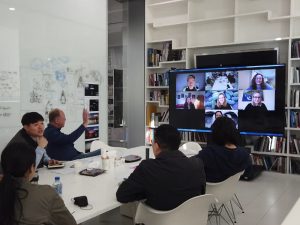Four distinctive study areas were explored by RISD students, faculty and Hyundai researchers
Hyundai Motor Group and Rhode Island School of Design (RISD) recently announced a research collaboration to examine relationships among natural and built environments in order to propose new directions for the future of mobility.

The study expands on the smart mobility vision announced by Hyundai Motor Group at CES 2020. Hyundai’s vision, which aims to help vitalize human-centered future cities, focuses on three mobility solutions: Urban Air Mobility (UAM), Purpose Built Vehicle (PBV) and Hub. The joint research with RISD will help infuse these solutions with insights from RISD’s pioneering faculty and students.
Through RISD’s Research & Strategic Partnerships program, the partnership with Hyundai elevates expertise of faculty with the experimental creativity of students to conceive our future realities.
Based on this vision, the study examined four distinctive areas of future mobility, including graphic design, industrial design, sound design, and textile design.
“The post-panemic era will require us to come up with new ways of thinking for our mobility ecosystem to evolve,” said SangYup Lee, Senior Vice President and Head of Hyundai Global Design Center.
“Our broader institutional vision—as set forth in RISD’s strategic plan, commits to contributing to new knowledge through innovative curricula and increasing our overall research capacity to support interdisciplinary inquiry and exchange,” said RISD President Rosanne Somerson.
“RISD’s partnership with Hyundai opens an inspiring new chapter in the space of design, art and creation. Hyundai has a keen interest in the unknown—as does RISD— and we thank them very much for making this research possible,” noted RISD Provost Kent Kleinman.
